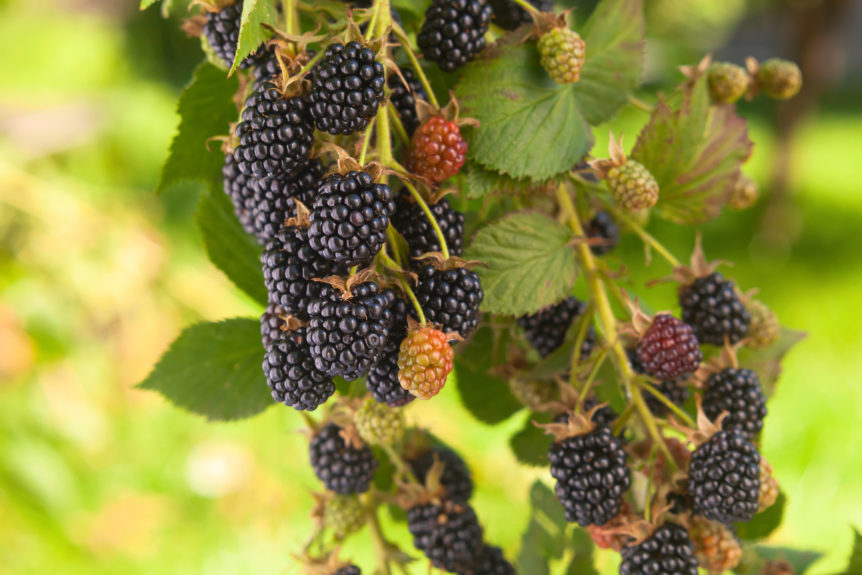
By igorr1/DepositPhotos image
Florida specialty crop farmer Matt Parke may still be a relative newbie when it comes to blackberry production. But he seems to have figured out a secret to blackberry success in central Florida.
“Here in central Florida we don’t get the chill hours required to make them flower good, so you’ve got to figure out how to trick them into thinking they’ve got enough cold to produce. We shut them off in October and got them to defoliate by January and the buds started swelling,” said Parke, farm manager of Parkesdale Farms in Plant City, Florida. “The way it’s running right now I could probably get almost 10,000 pounds to the acre which is about 3,000 or 4,000 more than normal.”
This is Parke’s second season growing blackberries and admits a growth spurt in production compared to last year.
“We’re picking pretty good. Last year I had them, but they didn’t pick as well. I was trying to learn them. This year I’ve got them figured out and picking a good crop off,” Parke said. “There’s only one other person that grows them (in central Florida) and they’ve only got like an acre. I’ve been working alongside the University of Florida, and we have figured out how to trick them. They’re coming up with varieties now that are a better fit for our temperatures that we have here.”
Parke, a large strawberry producer in Plant City, wanted to diversify his crop portfolio. That is why he ventured into blackberry production but only in small increments.
“I wanted to diversify a little bit and see what was going on. We didn’t plant too many acres of them. We’ve got eight acres which is not a drop in the bucket,” Parke said. “I could have planted more but I wanted it to prove itself before I took a bigger investment. It’s not a cheap investment up front. It’s not as much as blueberries, but it’s close.”
As good as production has been, the market has also been friendly to Parke. While it has recently succumbed to an influx of berries from Mexico, Parke has benefited from the local appeal of Florida grown.
“The market actually was better. It’s poor now because Mexico has an awful lot of them, but we’re able to capitalize on a Florida-grown berry and get a little more money for them.” Parke estimates he will harvest until the middle of June before his labor’s departure.

By Clint Thompson










